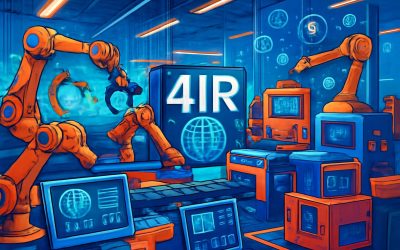Artificial intelligence (AI) is a computer technology that gives machines the ability to think and act like human beings. AI can help people in a number of ways, including making medical diagnoses, providing customer support and driving self-driving cars. It can also identify patterns and trends in data that humans might miss, such as a sudden shift in consumer behavior or market conditions.
It is a popular belief that AI will replace humans in many jobs, but this is not the case. In fact, AI can make people more productive and improve their overall quality of life. For example, financial traders can use predictive analytics powered by AI to make faster trading decisions that improve their returns and reduce risk. In medicine, AI can diagnose cancer and spot genetic mutations that require specific medications.
Some people have a misconception of what AI is, and they link it to robots that can perform tasks automatically. However, the real definition of AI is much broader. AI is a set of technologies that allows computers to learn and solve problems on their own, without being programmed explicitly. It can be used to automate repetitive tasks, make predictions and find solutions to complex problems.
In recent years, there has been a proliferation of artificial intelligence applications. These range from intelligent personal assistants such as Siri and Alexa to medical diagnostic tools and chess programs that can beat world champions.
The growth of AI applications is partly due to the availability of more powerful processors and algorithms that allow machines to process information more quickly. It is also a result of advances in areas such as natural language processing and vision systems that enable the recognition of objects and actions. In addition, the availability of open-source libraries that simplify model development and deployment has made it easier for anyone to create an AI application.
As AI becomes more common, companies are looking for individuals with experience in building and deploying scalable models. This includes ensuring the right training datasets are used, understanding how to optimize model performance and creating APIs that can be easily integrated into web or mobile applications.
While there is a lot of interest in the field, the skills gap between those who are proficient in building AI applications and those who know how to utilize them is growing. In order to fill this gap, a new class of AI experts is needed. This requires a mix of skills, including a deep understanding of machine learning algorithms and an ability to translate technical concepts into practical solutions.
Fortunately, there are several free python AI projects that can help beginners get started in the industry. These projects can help students gain hands-on experience in developing AI solutions and build their portfolios to show prospective employers. They can also introduce them to cutting-edge development environments and libraries. The more experience a student gains in the field, the better they will be able to demonstrate their capabilities in a job interview.



0 Comments